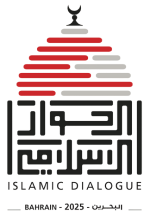Participants in the first session of the Intra-Islamic Dialogue Conference, held under the patronage of His Majesty King Hamad bin Isa Al Khalifa, agreed on the importance of further developing Islamic unity and fostering mutual understanding among sects to address challenges facing the Muslim nation.
Speakers emphasised the need to overcome historical differences and promote peaceful coexistence, citing successful initiatives that have brought Islamic sects closer together.
Professor Hassan Al Shafei, a member of the Council of Senior Scholars at Al Azhar Al Sharif and the Muslim Council of Elders, highlighted key obstacles to Islamic unity, including lack of mutual knowledge among sect followers and the spread of misinformation that perpetuates false stereotypes.
He emphasised the need for awareness-building, dialogue, and a focus on common principles such as the unity of the Quran, the direction of prayer (Qibla), and fundamental tenets of faith.
Sheikh Dr. Hamid Shahriari, Secretary General of the World Forum for Proximity of Islamic Schools of Thought (WFPIST), called for institutional cooperation among Islamic countries through a unified framework to promote collaboration and collective action.
He highlighted that such cooperation would enhance security, stability, and shared progress in the Muslim nation.
Sheikh Ul Islam Allahshukur Pashazadeh, Grand Mufti of Azerbaijan and the Caucasus and a member of the Muslim Council of Elders, presented Azerbaijan as a model for Islamic coexistence, where Sunni and Shia Muslims live in harmony, follow a unified worship calendar, and engage in religious practices without distinction between Sunnis and Shia.
He noted that this approach reflects Azerbaijan’s national policy and cultural heritage.
Professor Osama Al Azhari, Egypt’s Minister of Awqaf, stated that theological diversity is a natural part of human existence and religious thought, emphasising that jurisprudential differences should never lead to division or discord within the Muslim community.
Islamic scholar Dr. Bashar Awad Marouf underscored the need for a structured approach to Islamic dialogue, focusing on shared principles while avoiding the amplification of doctrinal disputes in public discourse.
Concluding the session, participants noted that achieving Islamic unity is not an impossible goal but requires collective efforts at intellectual, political, and social levels.
They highlighted the role of media in fostering reconciliation rather than fuelling conflicts and pointed to successful models of coexistence in the Islamic world that can serve as practical frameworks for unity while countering extremist ideologies.


